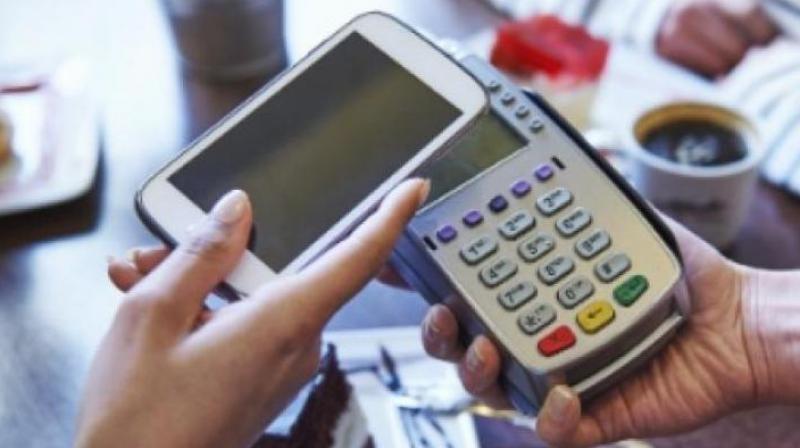Digital payments rose 55 per cent in FY'17: Watal
Overall digital payments recorded a compounded average annual growth rate of 28 per cent from 2011-12 to 2015-16.;

New Delhi: Digital payments recorded 55 per cent increase in 2016-17 and the trend is likely to continue in the coming years indicating that India is at 'the cusp of revolution' in this area, Niti Aayog Principal Advisor Ratan P Watal said today.
The spurt, over 2015-16, came in the financial year during which the government demonetised high value currency. The volume of overall digital payments, Watal further said, recorded a compounded average annual growth rate of 28 per cent from 2011-12 to 2015-16.
"These figures are truly reflective of the fact that India today stands at the cusp of a digital payments revolution," he said at an event organised by industry body Ficci.
"Due to innovations in digital payment technologies and increasing consumer satisfaction, the growth trends in digital payments are positive and will continue to dominate the payments landscape in India," he said.
The former finance secretary, who had also headed the Committee on Digital Payments, further said: "This (growth in digital payments) is very critical in the light of the fact that the government has set a target of 25 billion transactions to be achieved by March 2018."
Watal said the value of overall payments was around 13 to 14 times of GDP during this period (2016-17).
"In contrast, the outstanding stock of currency in circulation, which hovered around 12 per cent of GDP during 2011-12 to 2015-16, declined to 8.8 per cent during 2016-17, reflecting the impact of demonetisation partially offset by the ongoing re-monetisation process," he noted.
The government had demonetised high value currency (Rs 500 and Rs 1,000 notes) last November and has been promoting a less cash economy through greater push on digital payments.
Watal further pointed out that retail payments accounted for as much as 98-99 per cent of the total volumes. Referring to a recent article of former finance minister P Chidambaram that digital payments have declined post demonetisation, Watal said that his analysis was based on selective RBI data and does not reflect the true picture.
"In his article former finance minister P Chidambaram stated that the surge in digital Payments, post demonetisation was temporary as cash was not readily available. Once cash was available, the surge in digital Payments tapered off He used RBI data to substantiate his hypothesis. "This was examined in NITI Aayog in consultation with RBI dispassionately," Watal pointed out.
He said this data is published for a few select payment system indicators only and includes card transactions of only 4 major banks.
"The data therefore referred to a subset of the entire spectrum of Digital Payments. Hence the conclusion that was drawn may not have given the true picture," Watal asserted.
Noting that in April 2017, there has been again a significant growth in Digital payments as compared to April 2016, the former finance secretary said that "these findings run counter to what was projected in the article that I referred to".
The government had set up the Committee on Digital Payments under the chairmanship Watal. The committee submitted its final report in December 2016 to Finance Minister Arun Jaitley.

